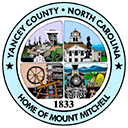Starting a Home Food Business in NC
go.ncsu.edu/readext?938772
en Español / em Português
El inglés es el idioma de control de esta página. En la medida en que haya algún conflicto entre la traducción al inglés y la traducción, el inglés prevalece.
Al hacer clic en el enlace de traducción se activa un servicio de traducción gratuito para convertir la página al español. Al igual que con cualquier traducción por Internet, la conversión no es sensible al contexto y puede que no traduzca el texto en su significado original. NC State Extension no garantiza la exactitud del texto traducido. Por favor, tenga en cuenta que algunas aplicaciones y/o servicios pueden no funcionar como se espera cuando se traducen.
Português
Inglês é o idioma de controle desta página. Na medida que haja algum conflito entre o texto original em Inglês e a tradução, o Inglês prevalece.
Ao clicar no link de tradução, um serviço gratuito de tradução será ativado para converter a página para o Português. Como em qualquer tradução pela internet, a conversão não é sensivel ao contexto e pode não ocorrer a tradução para o significado orginal. O serviço de Extensão da Carolina do Norte (NC State Extension) não garante a exatidão do texto traduzido. Por favor, observe que algumas funções ou serviços podem não funcionar como esperado após a tradução.
English
English is the controlling language of this page. To the extent there is any conflict between the English text and the translation, English controls.
Clicking on the translation link activates a free translation service to convert the page to Spanish. As with any Internet translation, the conversion is not context-sensitive and may not translate the text to its original meaning. NC State Extension does not guarantee the accuracy of the translated text. Please note that some applications and/or services may not function as expected when translated.
Collapse ▲ Late spring and early summer motivate many home cooks and bakers to sell food from their homes. If they frequently gift items they make, they may even hear others encourage them to sell their products at markets or online. But should you sell items made in your kitchen at home?
Late spring and early summer motivate many home cooks and bakers to sell food from their homes. If they frequently gift items they make, they may even hear others encourage them to sell their products at markets or online. But should you sell items made in your kitchen at home?
The short answer is yes and no. Unfortunately, the answer isn’t as cut and dry as folks would like, and regulations vary from state to state. Food made in a home kitchen and sold to consumers is called “cottage food.” North Carolina doesn’t technically have cottage food laws in place, but NC law authorizes the production of low-risk foods in home kitchens under certain circumstances. Under the Good Manufacturing Practices (GMP) developed by the FDA, an inspection is required before selling food from a home kitchen. However, before an inspection occurs, one must decide which products to make and sell. Foods that can be prepared in a home kitchen are broken down into two categories: high-risk foods and low-risk foods. High-risk foods must be produced in a licensed commercial facility and include the following:
- refrigerated or frozen products (including dairy products)
- low-acid canned foods
- seafood
Low-risk foods are considered safe for home production and include:
- baked goods
- jams and jellies
- candies
- pickles
- acidified foods
Shelf-stable pickles, acidified foods, sauces and some liquids, are allowed, but these foods require laboratory testing. Contact North Carolina State University’s Food Science Department for testing information.
Inspection Key Requirements of Home Kitchens:
- Food contact surfaces must be smooth and easy to clean
- No pets in the home at any time
- Restroom and hand washing facilities – must have hot and cold running water easily accessible from processing area
- Kitchen sink is for food prep only, hand washing must be done in a separate sink
- Thermometer must be kept in refrigerator to monitor temperature
- Waste must be carried away from the house in an acceptable fashion (sewer or septic system)
- All light bulbs in the kitchen must have protective shields or be shatter-proof
- Well or spring water systems must be tested by a certified private company or the local health department. Results must be attached to the completed application for the inspection.
For more information about starting a home food business, visit the North Carolina Department of Agriculture and Consumer Services.




